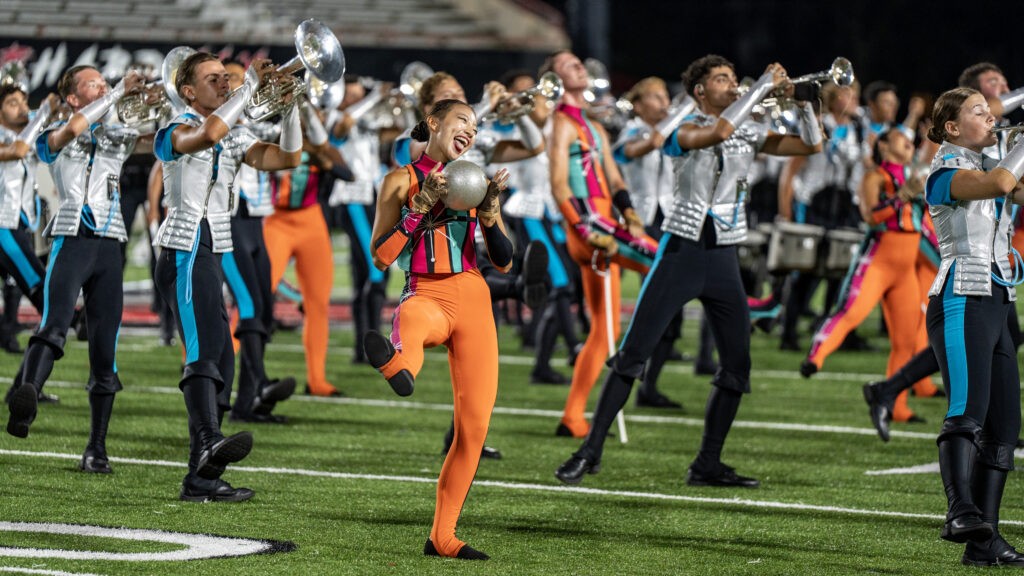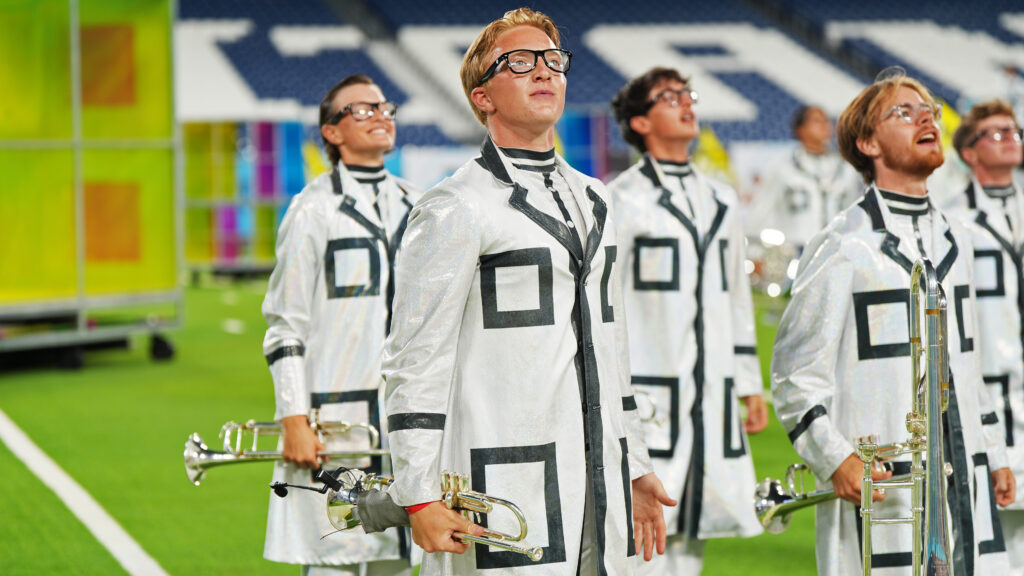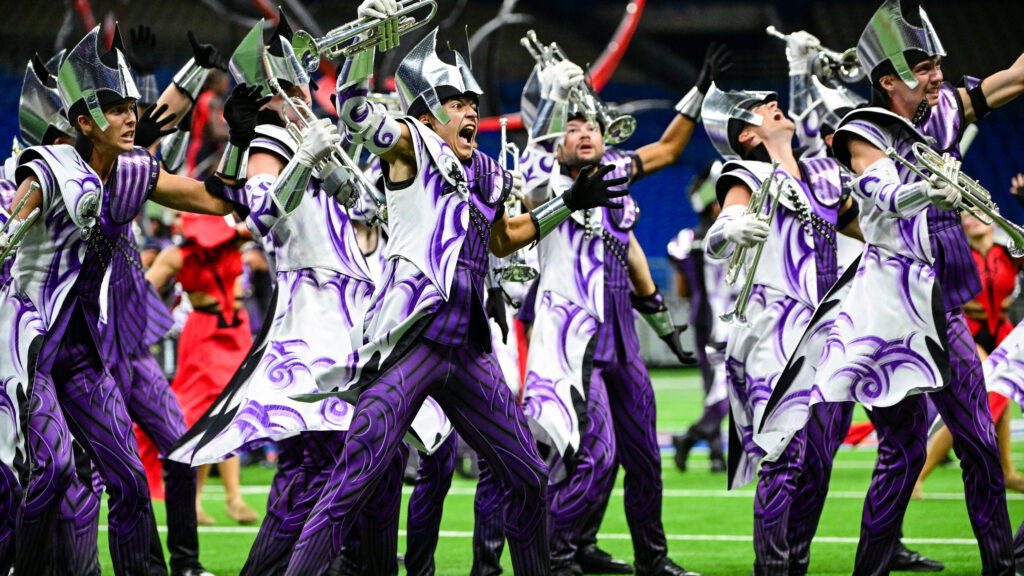When it was learned that Lucas Oil Stadium wouldn’t be completed until after the 2008 DCI World Championships, the events originally scheduled for Indianapolis got moved down the road to Indiana University’s Memorial Stadium.
Record rainfall in June resulted in a large sinkhole appearing in the Bloomington, Indiana stadium’s end zone, which further complicated plans. However, the stadium got repaired in time and the most recent World Championships held in an outdoor facility went off with no difficulties amidst stunningly beautiful weather.
Competitively in 2008, the Madison Scouts had been sitting on the bubble of a finalist berth, having previously lost during the season to Crossmen, Colts, Spirit, and Troopers; four corps that didn’t advance into Finals. The Scouts had earlier fallen to the 13th-place Crossmen four times and 14th-place Colts eight times, then beat Crossmen by 0.025 in Prelims and 0.425 in Semifinals to advance into Finals and finishing in 12th.

Crossmen’s otherworldly production, “Planet X,” kicked off with the horns in a giant block “X” form, surrounded by color guard members wearing futuristic costumes. The opening standstill fanfare borrowed from the themes of “Jupiter, the Bringer of Jollity” and “Mercury, The Winged Messenger,” both from Gustav Holst’s “The Planets.”
Originally both those movements from “The Planets” were scored for two pianos between 1914 and 1916, based not on the planets themselves, but the astrological symbolism of each celestial body. After Holst ported the six piano movements to symphonic orchestra, the seven-movement suite became his most famous creation.
Crossmen arrangers took “Jupiter” and thoroughly recomposed and personalized it to the point that at times it had little resemblance to the original source material. The same could be said about the brief appearance of the opener’s final moments of “Mercury, the Winged Messenger,” accompanied by a throbbing percussion beat from the 5/4 rhythm of “Mars, the Bringer of War.”
Throughout the opener, “X” drill formations often appeared for a few seconds before dissolving into the next form.
More of “Mercury” appeared in the second piece, which was treated in a highly obtuse manner that forced ears to listen really close to hear the main melody. Some additional elements from “Mars” briefly appeared as a four-point star led into a block “X” that rapidly split apart as the front ensemble keyboards played “Twinkle, Twinkle Little Star.” The horn line proceeded to play the folk song to the backfield, quickly morphing into “What a Wonderful World” by George Weiss and Bob Thiele, first recorded by Louis Armstrong in 1967.
Turning to the front, the brass blasted out the melody amidst the fervent spinning of purple, orange, and pink pastel flags intersected by a black “X,” ending with the horns moving to the front in a tight block for the final shout chorus.

A percussion break accompanied by rifles and twirling orange “X” forms evolved into a rather straightforward rendition of the main chorale section from “Jupiter,” which Holst later adapted into the church hymn, “I Vow to Thee, My Country,” immensely popular in the Church of England as a patriotic hymn.
Flags of various shades of purple sprang up, also featuring a black “X” form. Seven “X” forms rotated within the horn line, with the show ending as a single large orange “X” prop continued to spin for a few seconds past the cutoff of the horns and percussion.
Finishing 2008 in 13th place, it wouldn’t be until 2012 that Crossmen regained a spot as a finalist corps. After a 14th-place finish in 2013, the San Antonio corps has held a spot among the Top 12 corps every year since.

Michael Boo was a member of the Cavaliers from 1975-1977. He has written about the drum corps activity for more than 35 years and serves as a staff writer for various Drum Corps International projects. Boo has written for numerous other publications and has published an honors-winning book on the history of figure skating. As an accomplished composer, Boo holds a bachelor's degree in music education and a master's degree in music theory and composition. He resides in Chesterton, Indiana.

























































